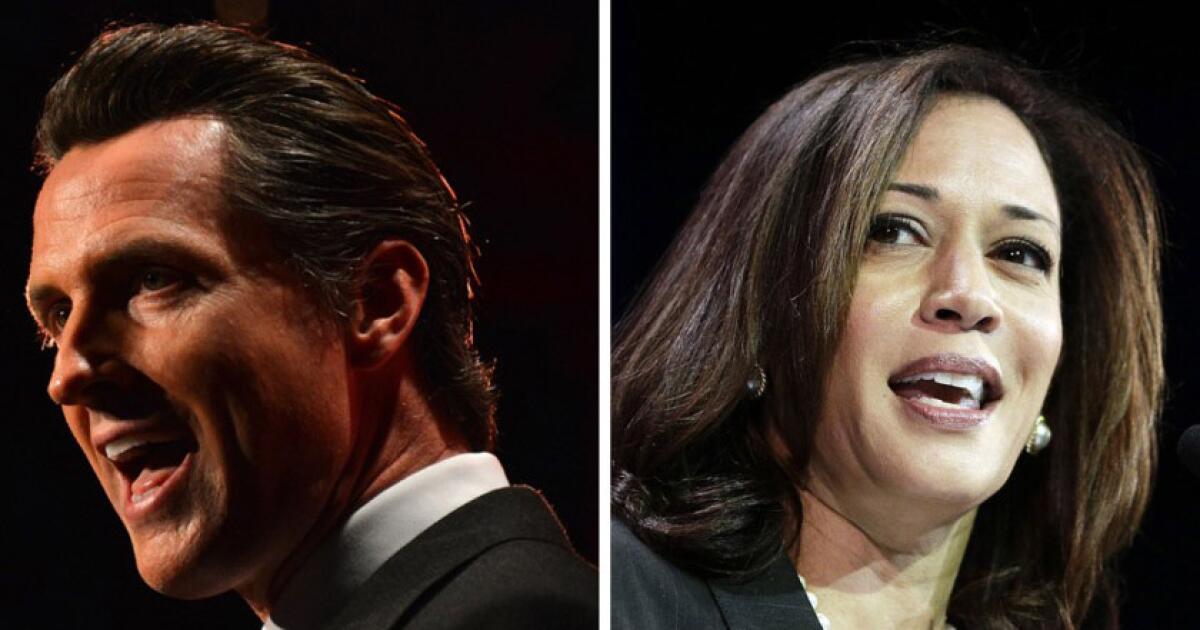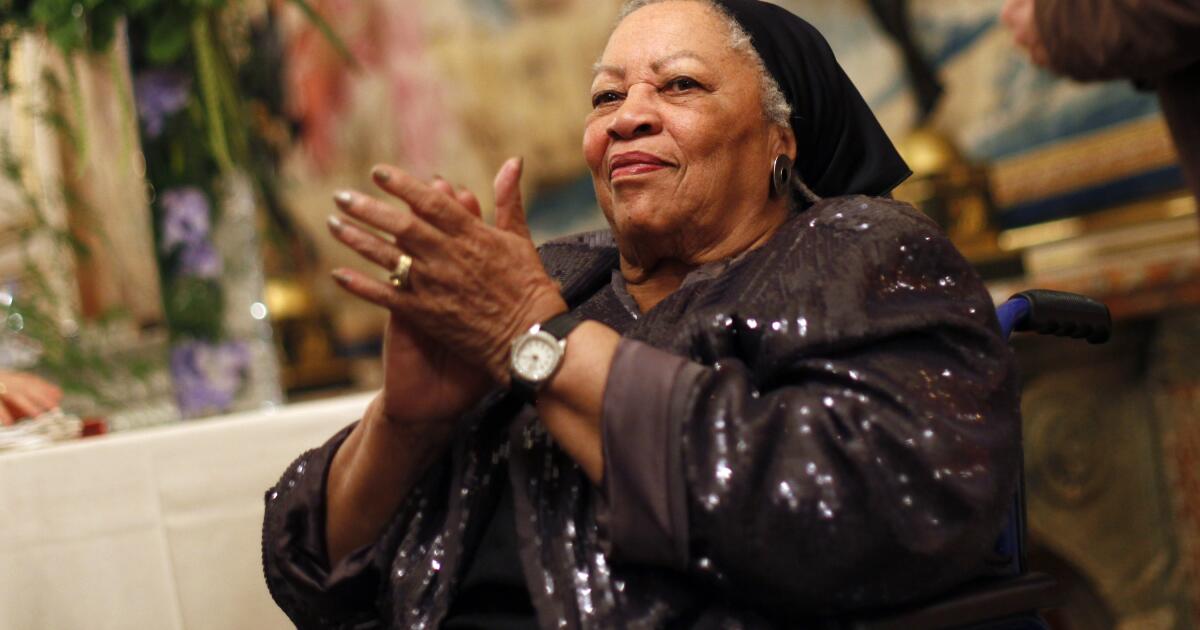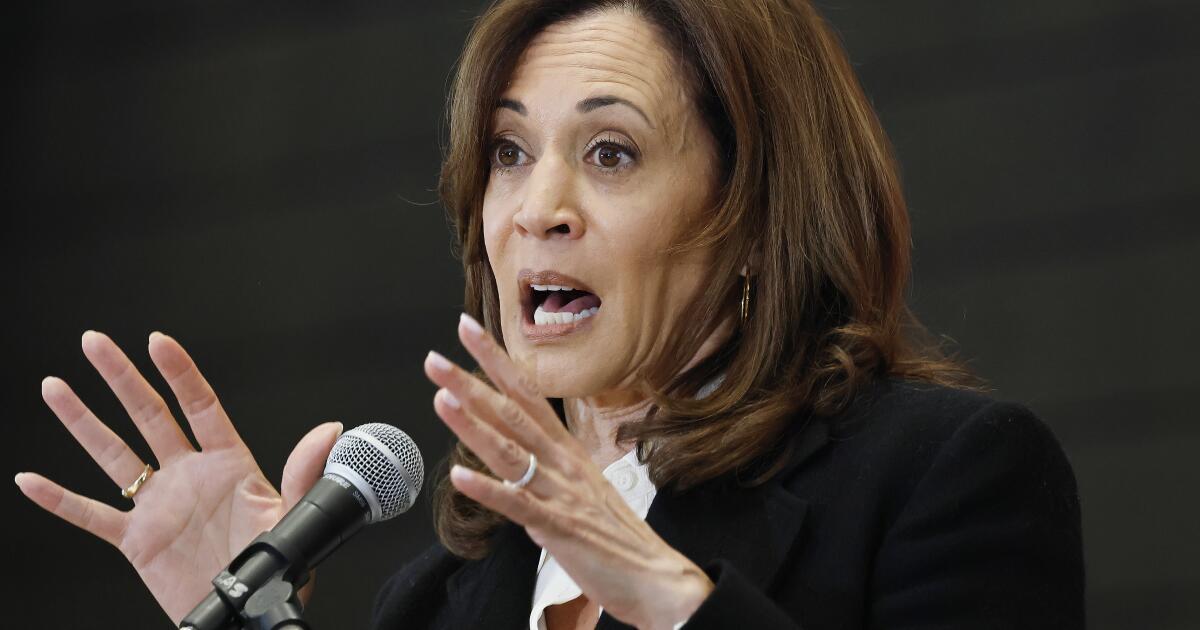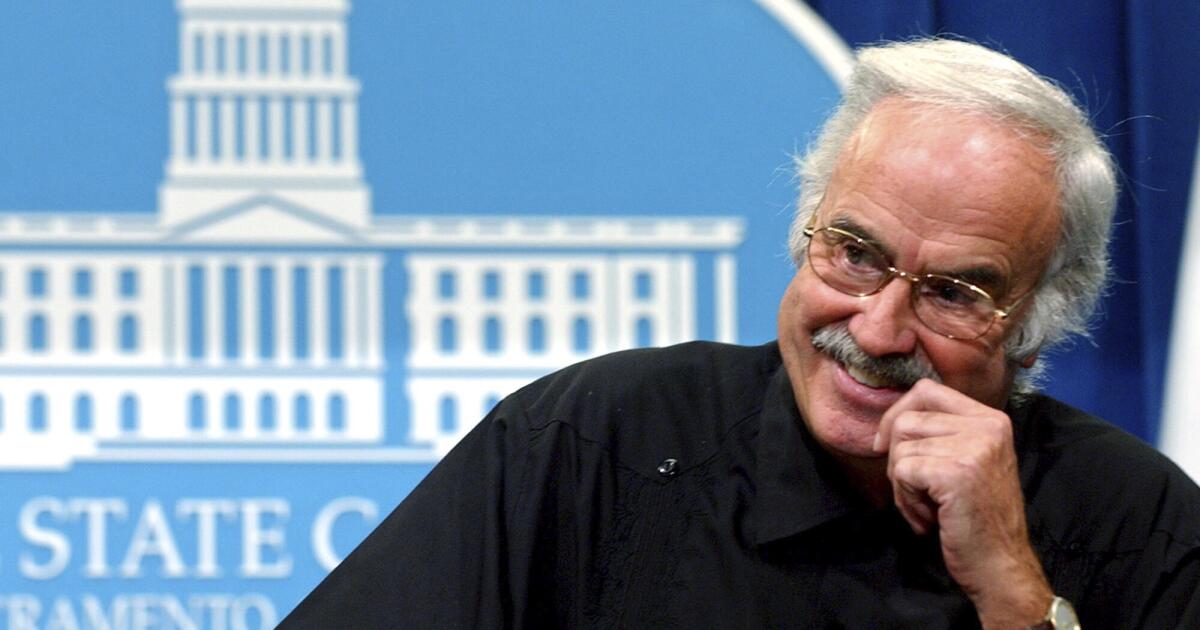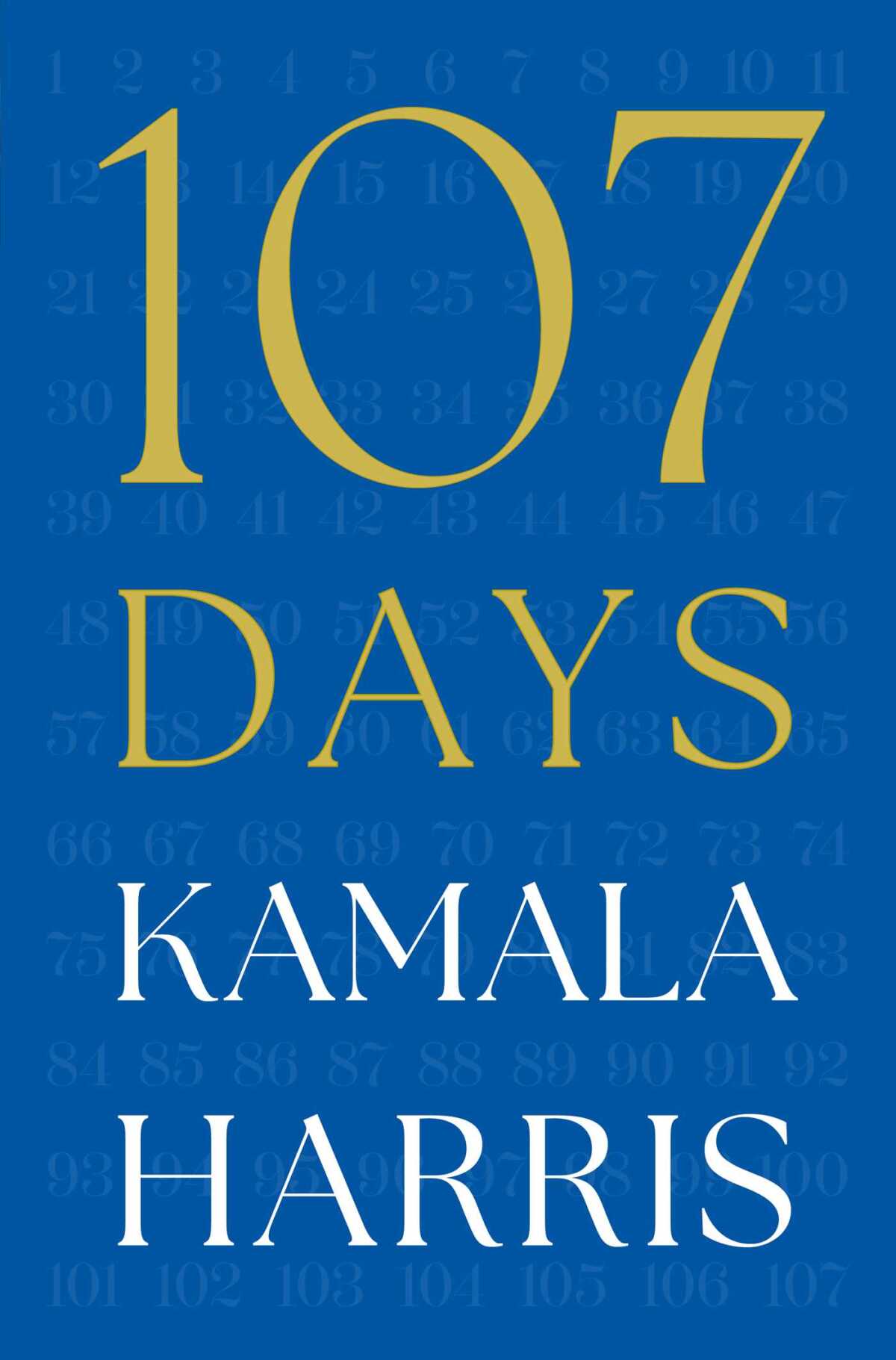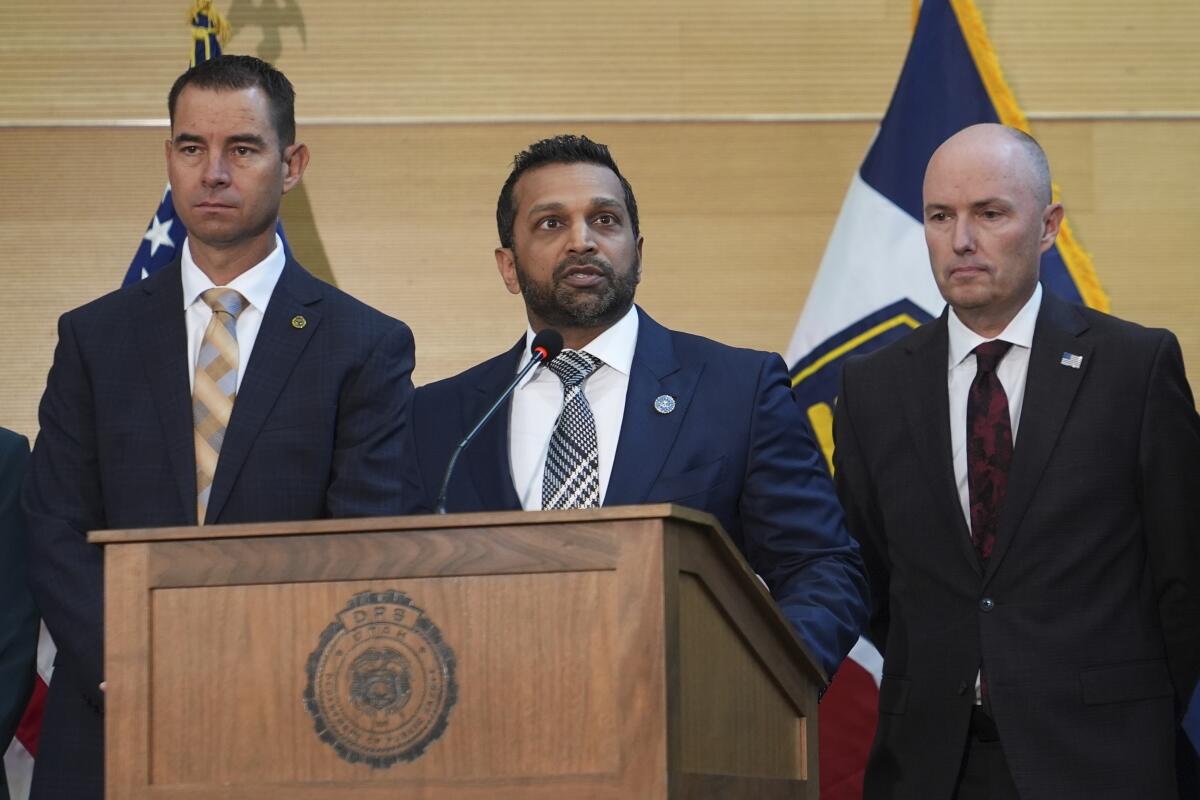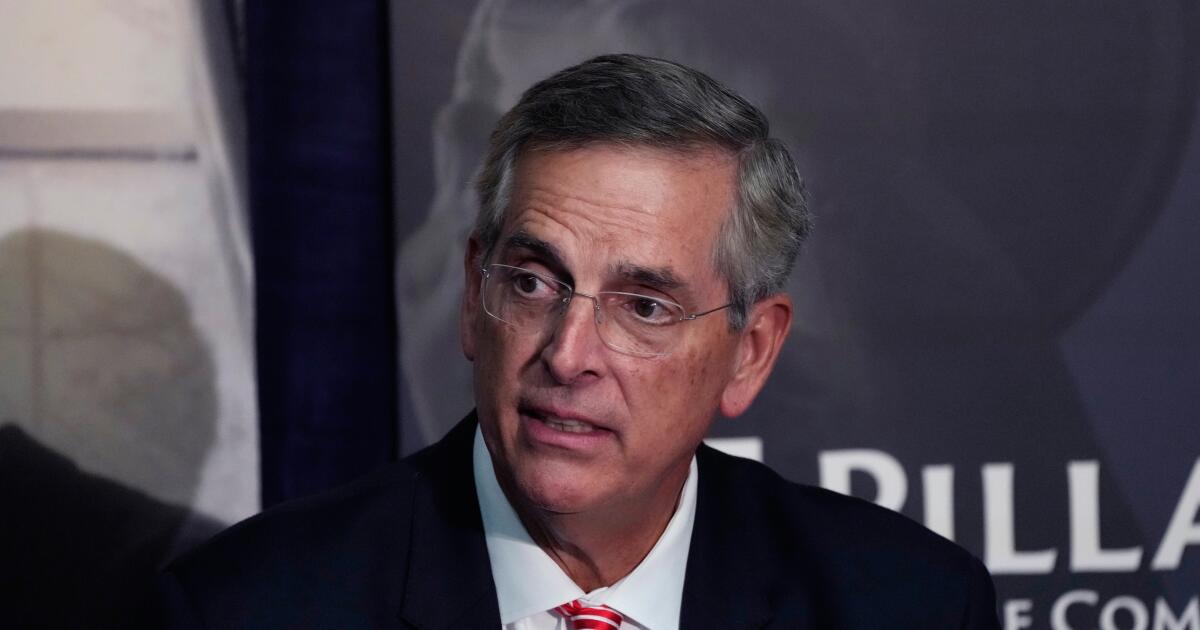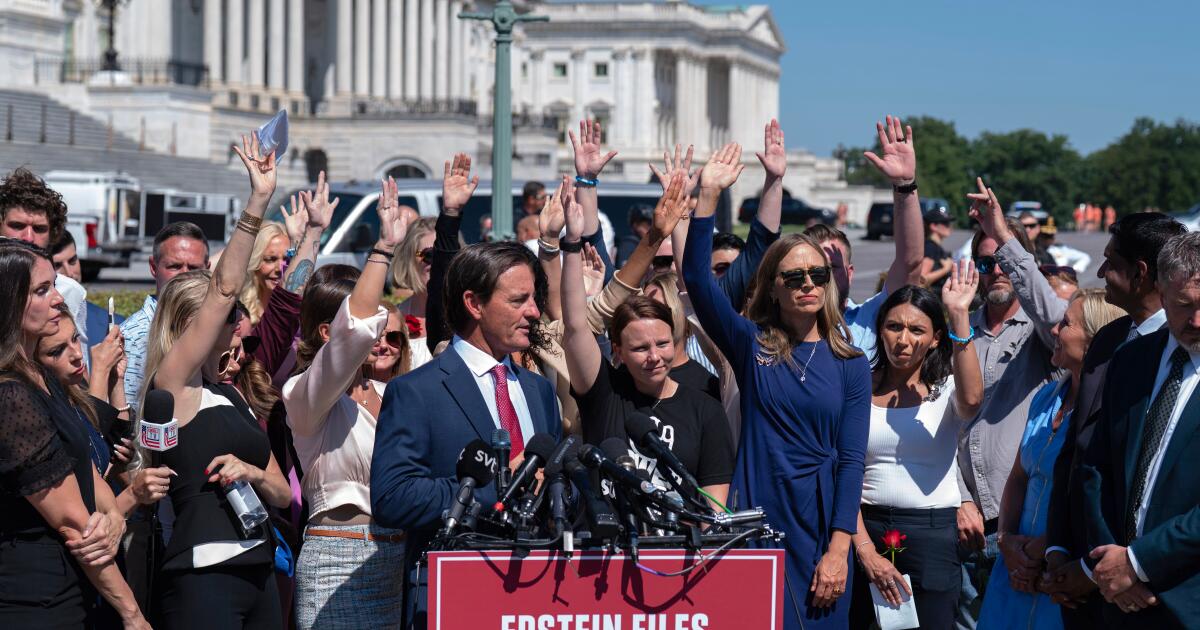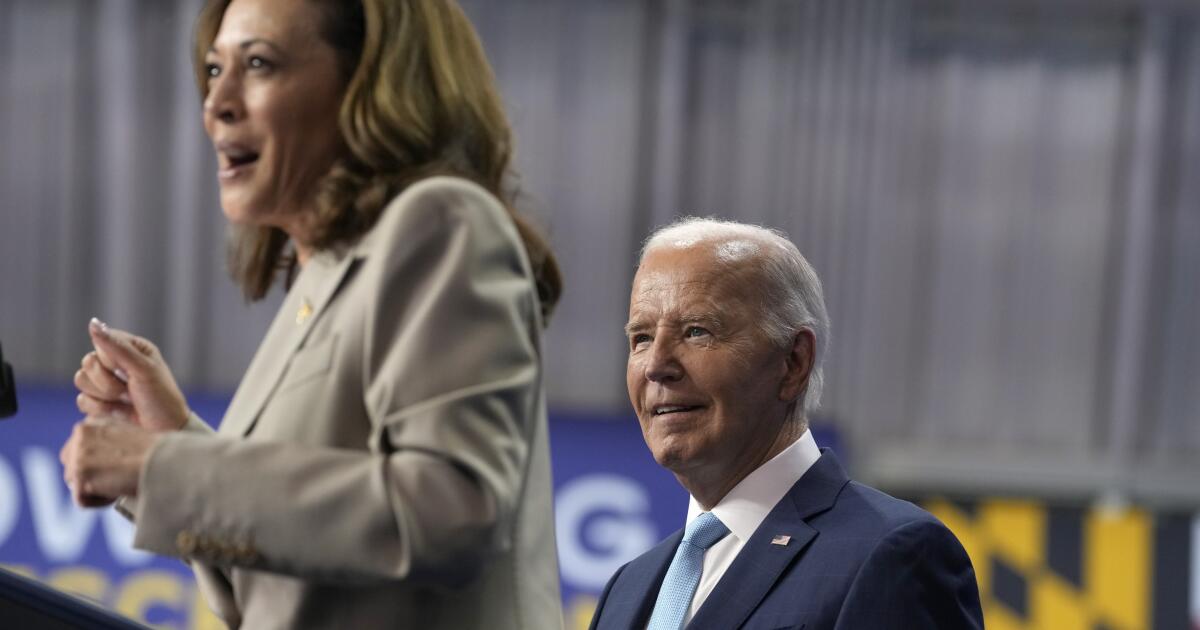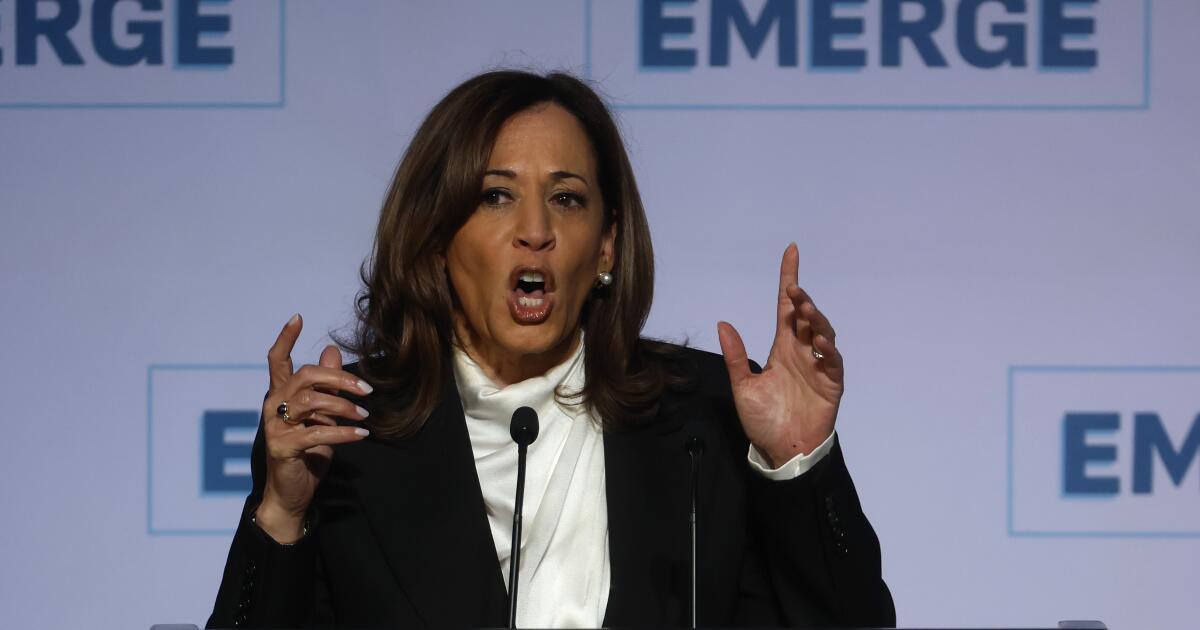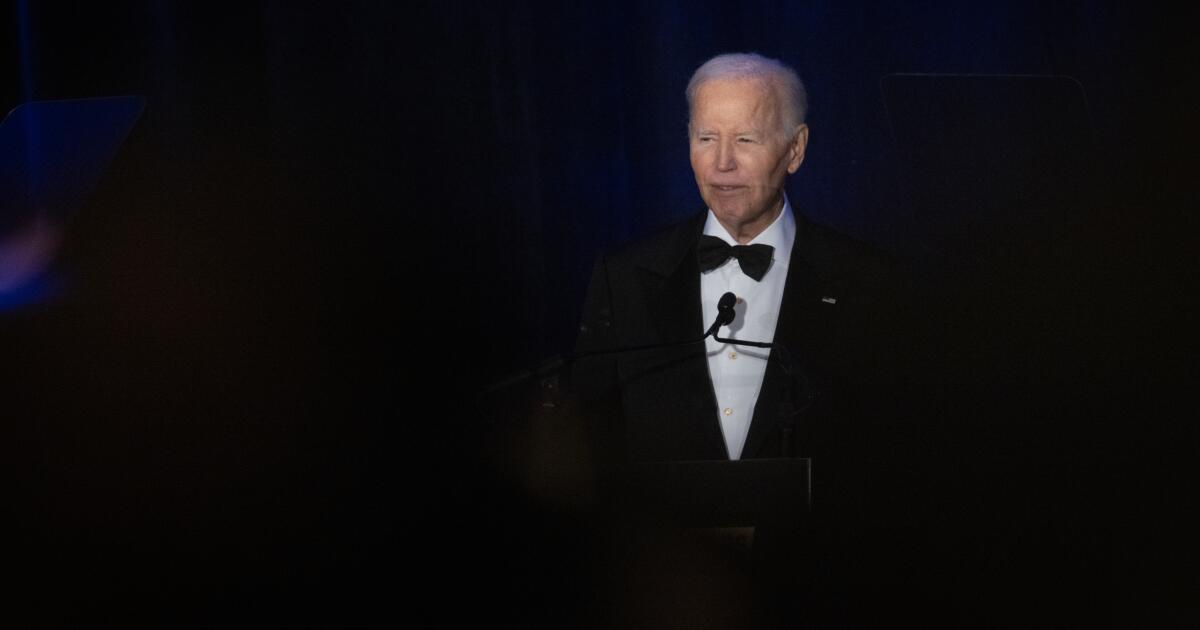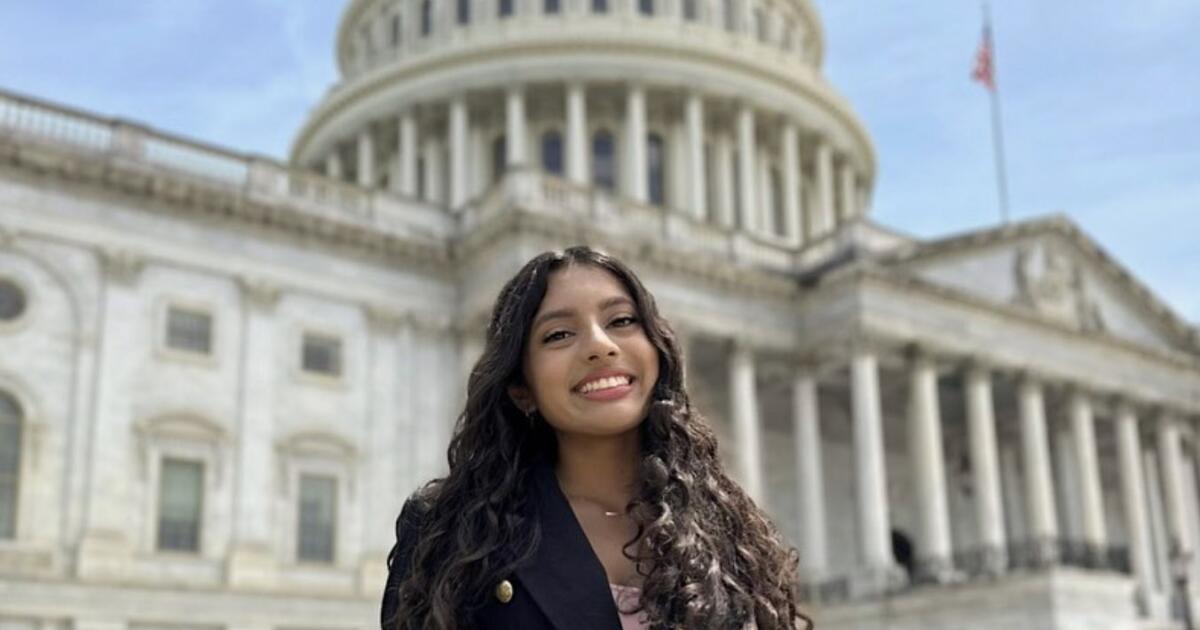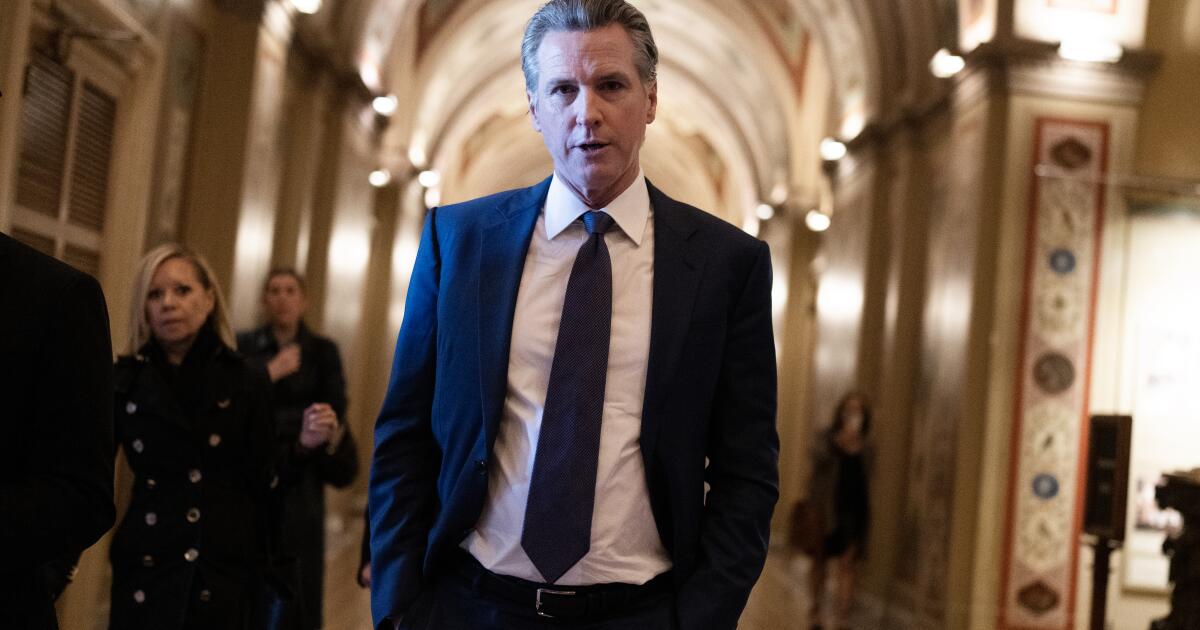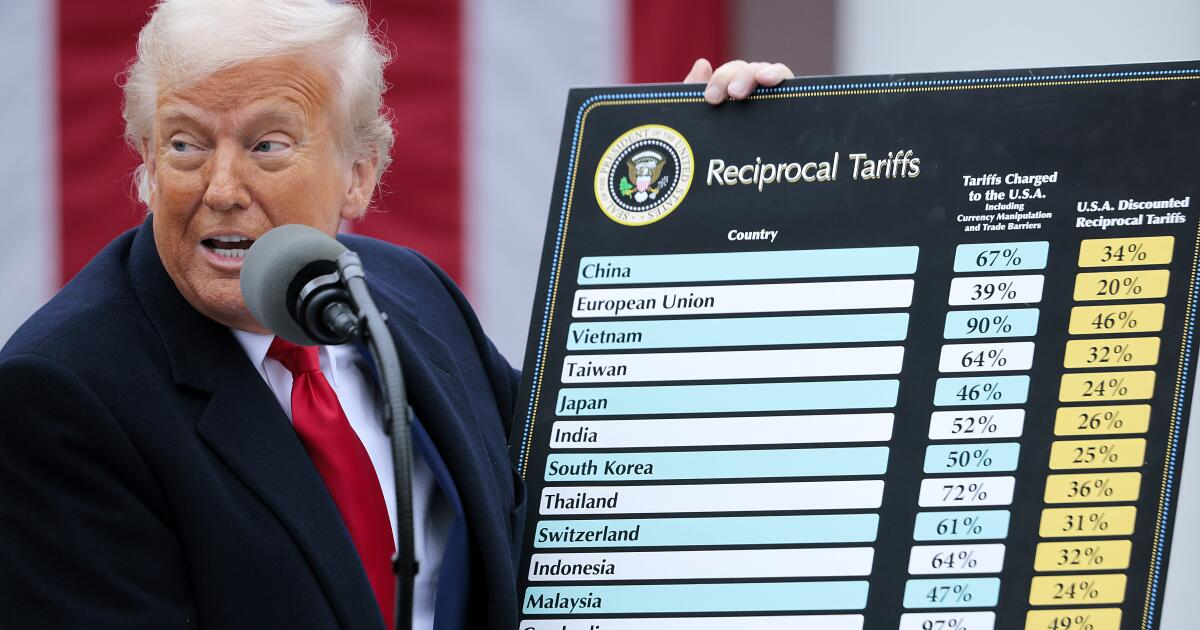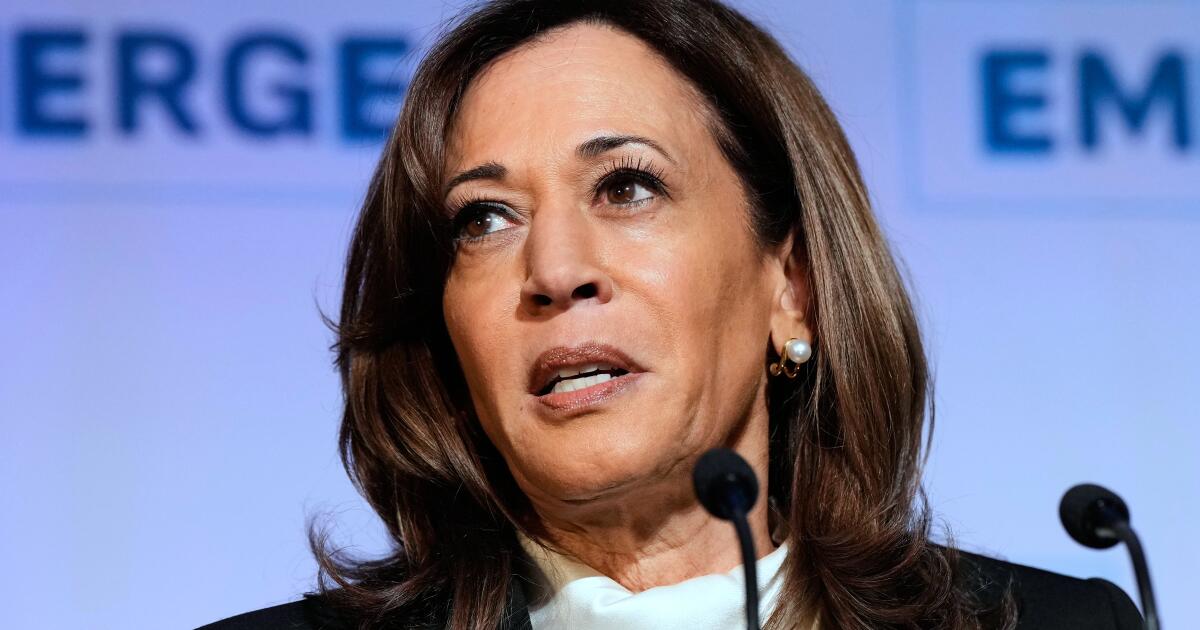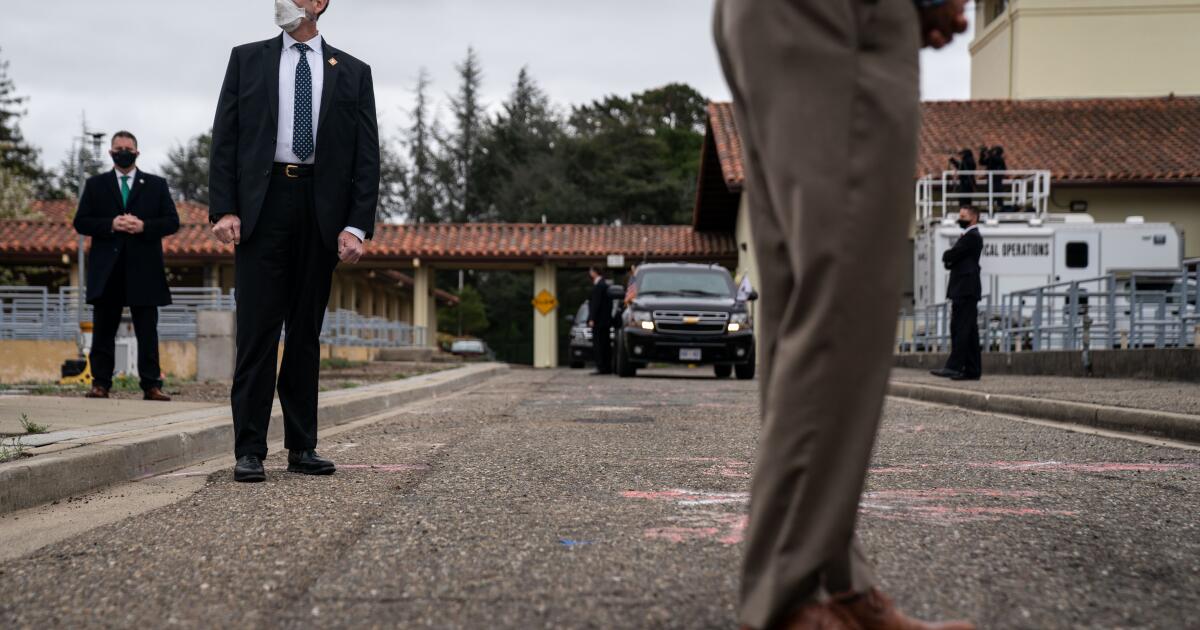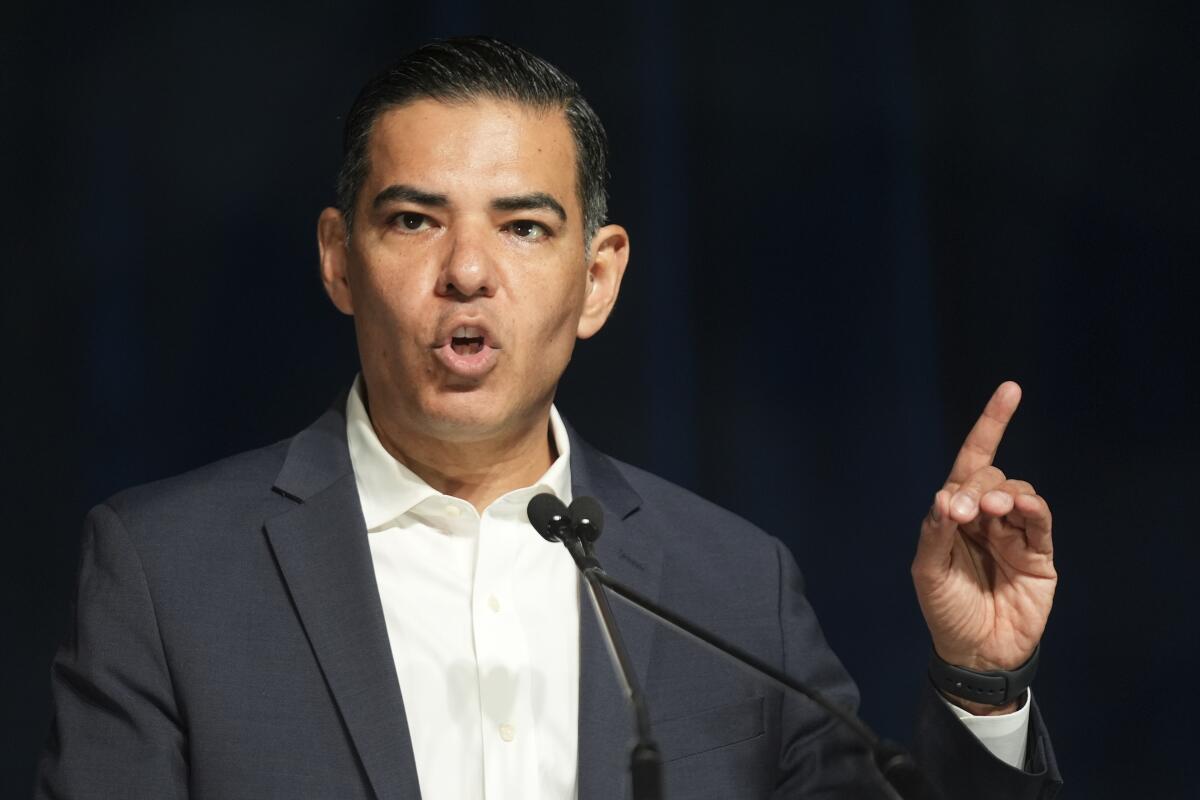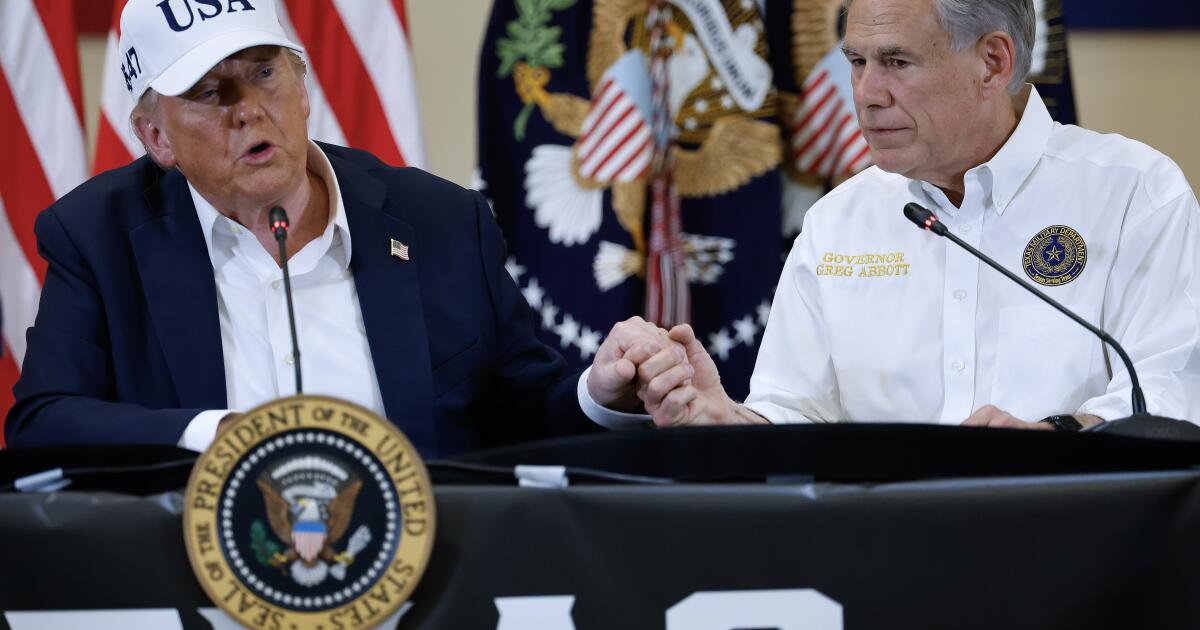WASHINGTON — The U.S. remains mired in a deadly pandemic, the economy is suffering from a bout of inflation and states face challenges from climate to transportation, but with only days left in their close-fought race, the hottest issue dividing Virginia’s candidates for governor this week was the late novelist Toni Morrison.
The Republican candidate, Glenn Youngkin, who has steadily gained ground over the past two months, aired an ad featuring Laura Murphy, a parent who had campaigned years ago against the use of Morrison’s widely acclaimed, Pulitzer Prize-winning novel “Beloved” in her son’s high school Advanced Placement English class.
In 2016 and again in 2017, then-Gov. Terry McAuliffe, a Democrat, vetoed a bill aimed at “Beloved” that Murphy helped lobby through the state legislature. It would have required K-12 teachers to give parents advance notice of books with “sexually explicit content” and allow them to take their children out of class. “Beloved,” based on a true story of a woman who killed her child to save her from slavery, includes several graphic descriptions of sexual violence.
Youngkin accused the former governor, now seeking to return to the office, of wanting to “silence parents because he doesn’t believe they should have a say in their child’s education.”
McAuliffe fired back that Youngkin was “focused on banning award-winning books from our schools and silencing the voices of Black authors” such as Morrison. The Republican, he said, was engaged in “Trumpian dog whistles.”
Get our L.A. Times Politics newsletter
For both candidates, the issue provided a chance to rally key audiences — conservative suburban parents on the one side, Black voters on the other — as the state hurtles toward an election Tuesday that, if polls are correct, could be among its closest in years.
President Biden and former President Trump both have a lot riding on the outcome.
A close race on Democratic turf
The Virginia election is everything that California’s recall turned out not to be — a test of whether Democrats can hold the allegiance of suburban voters stressed by nearly two years of COVID-19 restrictions and of whether Republicans can win a blue state despite Trump’s unpopularity.
Last year, Biden carried Virginia by 10 points, and Democrats currently control all the statewide elected offices. The party took control of both houses of the state legislature over the last four years, and Republicans haven’t won the governorship since 2009.
In short, while Virginia is not as deeply blue as California or New York, it’s a state Democrats recently have been able to count on.
Right now, they can’t.
Biden’s popularity in the state has tumbled, just as it has nationwide since this summer when the Delta variant of the coronavirus upended his optimistic forecasts about COVID-19. A Monmouth University poll in mid-October found Virginia voters disapproving of Biden’s job performance, 52% to 43%, sharply down from an August poll.
The president’s slumping polls are a big problem for McAuliffe, creating “headwinds” for him, as the candidate told supporters last month.
He faces several other difficulties: With Democrats having run the state for the last eight years, they’re naturally the target of voters seeking a change. And McAuliffe, as a former governor trying to make a comeback — Virginia doesn’t allow governors to run for consecutive terms — wouldn’t be a likely change candidate in any case. As a 64-year-old white, male, longtime political figure, he’s not the type to inspire huge enthusiasm among young voters or progressives.
Youngkin, a first-time candidate, has skillfully positioned himself. He’s seized on discontent over schools to take control of an issue on which Democrats have long had an advantage. The Monmouth poll showed that education had risen on the list of top voter concerns and that Youngkin had pulled even with McAuliffe as the candidate voters thought could best handle the issue.
Overall, Youngkin clearly has momentum on his side. The Monmouth poll was one of several recently that found the two candidates dead even — a big accomplishment for the Republican, who this summer trailed by around seven points. A Fox News poll released Thursday evening showed Youngkin moving into the lead among likely voters.
Democrats have dominated early voting, which the state has greatly expanded, but both parties expect Republicans to show up in large numbers to vote in person on Tuesday.
Youngkin, the former CEO of Carlyle Group, a big private equity firm, has poured at least $20 million of his own money into the race, allowing him to keep pace with McAuliffe, a prolific fundraiser. He’s used that money for a barrage of television ads that depict him in classrooms, pledging to raise teacher pay — stealing a page from the Democratic playbook.
At the same time, he has closely identified himself with parents angry over unresponsive school bureaucracies — a sentiment that has boiled over in many parts of the country.
Youngkin has used education issues to mobilize conservatives, pledging to ban teaching of critical race theory in Virginia. It’s not clear that the academic theory, which analyzes the outcomes of systemic racism, is taught anywhere in the state’s K-12 schools, but the idea that it might be has become a rallying cry on the right. That, plus Trump’s endorsement, has solidified his Republican support.
Education also has given him an entrée to less ideological voters in the state’s large suburban regions. In recent elections, those voters increasingly have turned against the GOP, but many are deeply frustrated over the last year and a half of COVID-related school disruptions.
In the California recall election, Republicans had hoped that tapping into parental anger could give them the boost they needed to defeat Gov. Gavin Newsom. That failed, in large part because the top Republican candidate, Larry Elder, lacked credibility with swing voters.
Youngkin has avoided Elder’s habit of creating controversies. Instead, it was McAuliffe who inadvertently helped his opponent with ill-chosen words. During a candidate debate in September, as he explained why he had vetoed the so-called “Beloved” bill, McAuliffe said “I’m not going to let parents come into schools and actually take books out and make their own decisions.”
Then, he added: “I don’t think parents should be telling schools what they should teach.”
Youngkin has heavily featured that line in his ads.
McAuliffe’s campaign eventually responded with an ad in which the former governor expressed respect for parents, but the damage was done.
On top of the reasons that may cause some swing voters to switch this year, McAuliffe also faces a turnout problem, according to Democratic strategists close to his campaign: After the drama of last year, many Democratic voters are exhausted with politics. Republicans, by contrast, are highly motivated to avenge their recent losses.
To counter apathy, McAuliffe has depended heavily on Democrats’ chief motivator — Trump.
In speeches and advertisements, he constantly links his opponent with the unpopular former president.
So do his surrogates, including Biden.
“I ran against Donald Trump. And Terry is running against an acolyte of Donald Trump,” Biden said Tuesday during a campaign rally with McAuliffe in northern Virginia.
Former President Obama, Georgia’s Stacey Abrams and other leading Democrats who have come into the state to campaign have stressed the same point.
Trump, in his usual way, has not been able to resist the urge to get involved. On Wednesday, his spokesperson put out a statement saying that Trump “and his MAGA movement will be delivering a major victory to Trump-endorsed businessman Glenn Youngkin.”
McAuliffe’s campaign went into overdrive to ensure the statement was widely seen.
With the contest appearing so close — tight enough that the winner might not be known until final ballots are counted late next week — there’s one forecast that’s clear: Whichever candidate wins probably can thank Donald Trump.
A ‘framework’ if not a bill
Biden, before heading to Europe, where he will participate in the G20 economic summit and an international conference on climate change, traveled to Capitol Hill on Thursday to announce that he and party leaders had negotiated the “framework” of a bill to cover his major budget priorities.
As Jennifer Haberkorn and Nolan McCaskill reported, the measure, the subject of negotiations for months, would spend roughly $1.75 trillion over the next 10 years on a host of Democratic priorities, including universal preschool for 3- and 4-year-olds, subsidies for childcare and continuation of the expanded child tax credit.
On healthcare, the bill would expand subsidies under the Affordable Care Act and close the hole in Obamacare that excludes low-income people in the dozen states, mostly in the South, that have refused to expand Medicaid. Both expansions would last through 2025. Medicare would grow to include hearing coverage.
The bill would also include about $500 billion to combat climate change.
McCaskill prepared this summary of what’s in the framework.
Biden and House Speaker Nancy Pelosi hope that agreement on the framework will allow the House to pass the separate $1 trillion infrastructure bill that cleared the Senate in early August. But a large number of progressive House Democrats are continuing to hold out. They want more concrete assurances that Sens. Joe Manchin of West Virginia and Kyrsten Sinema of Arizona, who have been the main impediments to Biden’s budget plan in the Senate, will vote for the framework before they’ll vote to approve the infrastructure bill, which the two more-conservative senators support.
Democratic leaders hope to bring both bills to a vote as early as next week.
Several Democratic priorities fell out of the bill as the White House negotiated with Manchin and Sinema to reduce its cost. As Haberkorn reported, a key element that dropped out was a program for paid family leave. Also gone is a plan to allow Medicare to negotiate drug prices.
As Chris Megerian wrote, Biden has been pressing to get agreement on his domestic priorities before heading overseas for the summit meetings.
Friday morning, Biden began his European events with a private meeting with Pope Francis. As Megerian wrote, the meeting comes at a time when some conservative U.S. bishops have talked of denying Biden communion because of his support for abortion rights. The pope’s decision to host Biden “sends a message to the American bishops that denying communion is not something that he approves of,” said John K. White, professor of politics at the Catholic University of America in Washington.
Our daily news podcast
If you’re a fan of this newsletter, you’ll probably love our new daily podcast, “The Times,” hosted by columnist Gustavo Arellano, along with reporters from across our newsroom. Every weekday, it takes you beyond the headlines. Subscribe on Apple Podcasts and follow on Spotify.
Oil industry on the hot seat
In advance of the climate summit, a House committee has been grilling oil industry leaders about their decades-long record of downplaying the role that fossil fuels play in causing global warming. As Anna Phillips and Erin Logan reported, the hearing marked the first time that members of Congress have directly questioned oil and gas executives under oath about reported efforts to mislead the public about climate change.
Enjoying this newsletter? Consider subscribing to the Los Angeles Times
Your support helps us deliver the news that matters most. Become a subscriber.
The latest from California
Gov. Newsom and Transportation Secretary Pete Buttigieg announced $5 billion in loans to help modernize California’s seaports. The money probably won’t come in time to help clear out current snarls that have backlogged shipments, but it should help prevent future logistical nightmares, Megerian and Russ Mitchell reported.
In Sacramento, lawmakers called for changes following the oil spill off the coast of Orange County, but, as Phil Willon reported, they largely conceded that the state has little ability to ban offshore drilling, most of which occurs in federal waters.
The field of candidates for mayor of Los Angeles got another entry this week as Ramit Varma, an entrepreneur from Encino, announced his candidacy. As Dakota Smith reported, another businessman waits in the wings. Rick Caruso, the prominent developer, has been discussing a race with strategists, including Bearstar Strategies, the firm whose partners Ace Smith and Sean Clegg devised campaigns for former Gov. Jerry Brown and Vice President Kamala Harris.
Sign up for our California Politics newsletter to get the best of The Times’ state politics reporting.
